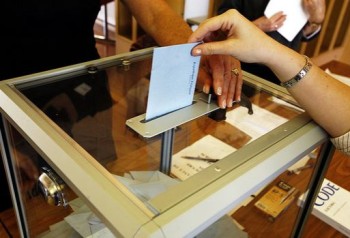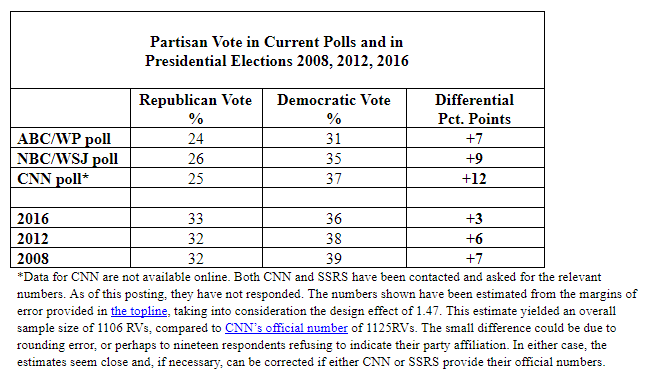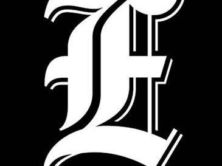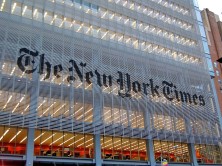
Upset with polls showing him trailing presumptive Democratic Party presidential candidate Joe Biden by double digits, President Trump released last week a memo by John McLaughlin of McLaughlin and Associates, which the president commissioned, that accused NBC, ABC and CNN of bad faith in their polling operation. Here are excerpts from that memo:
“The latest skewed media polls must be intentional. It’s clear that NBC, ABC and CNN, who have Democrat operatives like Chuck Todd, George Stephanopoulos and other Democrats in their news operations are consistently under-polling Republicans and therefore reporting biased polls. They continue to poll adults or registered voters that skew away from likely voters…
“The bias seems to be an intentional strategy to suppress your vote…it has to be a strategy to counter the enthusiasm of Trump voters…
“The refusal to screen for actual likely voters is creating an under-polling of Republicans and therefore Trump voters. It seems intentional. It’s exactly what the media did in 2016. Let’s prove them wrong again.”
Three times McLaughlin asserts that the named media organizations are intentionally under-polling Republicans in order to suppress Trump’s vote. Such an accusation without evidence is outrageous by any standard of professional ethics. One can critique the different methods used by various pollsters, but McLaughlin presents no evidence that these media organizations are intentionally trying to suppress Trump’s vote by polling registered voters instead of likely voters.
As is evident on Real Clear Politics, which provides summaries of poll results, the vast majority of pollsters these days are interviewing registered voters. That is a common strategy, because being a “registered voter” is a category that is easy to measure. Estimating who is likely to vote next November is a more tenuous operation, and most pollsters wait until later in the campaign season to do it. By then, voters are generally more certain about their intentions.
The practice of interviewing registered voters is clearly not an attempt to suppress Trump’s vote.
Recent Fox News polls on the 2020 election are also based on registered voters (RVs), not likely voters (LVs). Note that McLaughlin does not accuse Fox News of bad faith with its polls, though his arguments against the other polls would apply to Fox. This selective omission indicates how disingenuous his critique is. He wouldn’t be justified in accusing Fox News of having Democrat operatives who would try to manipulate the data, as he did NBC, ABC and CNN.
Also, it’s important to note that both Fox and NBC/WSJ polls are conducted by joint polling teams – each team consisting of a Republican and a Democratic polling firm. In fact, McLaughlin himself used to be the Republican half of the NBC/WSJ poll.
Some media polls – such as CBS and CNBC – have reported results based on their estimate of likely voters, but there are too few cases to establish whether the LV models this year will generally show a closer race than results based on registered voters. As shown on Real Clear Politics, CNBC reported a poll based on its LV model (May 29-31), showing Biden leading by 7 points. The NBC/WSJ poll (May 28-June 2), based on RVs, showed the same margin.
Partisan Voting in Presidential Elections
McLaughlin’s argument is that the LV models will insure a more positive representation of Republicans in the hypothesized electorate. He argues, for example, that recent polls by NBC, ABC and CNN include only 26%, 24%, or 25% of Republicans, when the exit polls in 2016 showed 33% of the electorate were Republican.
There are two points to consider. First, the turnout in 2016 is not necessarily going to be the same turnout in 2020. Polls have to measure what people say they will do now, rather than what voters did four years earlier.
Second, the RV samples in the current polls probably underestimate both Republicans and Democrats. Generally, partisan voters are more likely to vote than independents, whose motivation is typically much less passionate.
When pollsters begin using LV models, it is likely that there will be higher percentages of both Republicans and Democrats.
So, the key to the partisan breakdown is the difference between Republicans and Democrats.
Shown in the table below is a summary of the exit poll data on the partisan composition of the electorate since 2008, compared with what recent polls have found.

Note that in 2016, when Trump lost the popular vote but won the electoral vote, Democratic voters outnumbered Republicans by just three percentage points. In the two previous elections, however, when Obama first won in 2008 and when he won reelection in 2012, Democrats outnumbered Republicans by 7 and 6 points respectively.
Those latter numbers are fairly close to those obtained in the recent ABC/WP poll (+7 points) and the recent NBC/WSJ poll (+9 points). This suggests that those two polls are producing plausible results – though, as always, we have to remember that much can happen between now and November.
The recent CNN poll suggests Democrats outnumber Republicans by +12 percentage points, considerably higher than the other two polls, which contributes to CNN’s 14-point advantage for Biden over Trump. The ABC/WP poll had Biden up by 10 points, and the NBC/WSJ poll had Biden’s lead at 7 points.
The fact that CNN has higher numbers does not necessarily mean they are wrong. The Real Clear Politics summary shows an average Biden advantage of 8.1 percentage points, with a low of +3 to a high of +14. By statistical standards, that range is not unusual. It certainly doesn’t suggest any nefarious manipulation by pollsters with higher or lower numbers than the average.
No one can say now whether the turnout in 2020 will mirror the turnout in 2016, or the turnout in 2008 and 2012; or whether the turnout this year might show an even larger disparity between parties than in those years. Pollsters cannot assume consistency from year to year. They have to measure what the current sentiment is.
As a veteran pollster, McLaughlin knows all this. He knows that the pollsters are doing their best to give as accurate a picture of the electorate as they can. To accuse them of bad faith, of trying to subvert democracy by deliberately under-polling Trump’s support, while being paid to critique the poll is shameful.
McLaughlin should apologize.
I’ve sent McLoughlin an email asking for a response to my criticism. This commentary will be updated if he replies.






